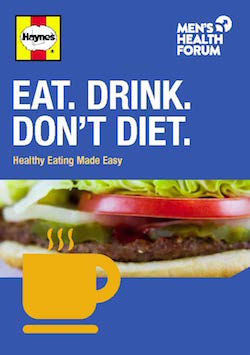Type 2 Diabetes FAQs

What is diabetes?
Read our Diabetes FAQs for more on the symptoms of diabetes and the health complications it can cause.
Tell me more about type 2 diabetes?
About 90% of people with diabetes have type 2. This can be controlled (and even reversed in some cases) using diet and medication.
Am I at risk of type 2 diabetes?
We’re all at risk of type 2 to some extent. You’re more at risk if you:
- are over 40 (or 25 for south Asian people)
- have a close relative with diabetes – such as a parent, brother or sister
- are overweight or obese (especially if you have a lot of fat round your middle)
- have high blood pressure and/or high cholesterol
- have a lifestyle which involves a lot sitting down
- smoke
- are of south Asian, Chinese, African Caribbean or black African origin (even if you were born in the UK).
I have been told I’m pre-diabetic, what does this mean?
There are number of phrases thrown around which basically mean ‘you don’t have diabetes yet but if you don’t change your lifestyle you’ll almost certainly get it’. These include pre-diabetes, borderline diabetes, Impaired Fasting Glucose (IFG), Impaired Glucose Tolerance (IGT) and Impaired Glucose Regulation (IGR).
It’s good to know because in a lot of cases (perhaps as many as 80%), type 2 diabetes can be prevented or delayed by lifestyle changes.
How is type 2 diabetes treated?
If you can’t control your type 2 using diet and exercise alone, you may be prescribed medication to lower insulin and blood sugar levels in your blood.
Usually you’ll be given Metformin first. It’s available in tablet and liquid form. But there are a number of drugs available and it may take time to find the right mix for you. Ask about an NHS medical exemption certificate so you don’t have to pay for prescriptions.
What happens when blood sugar gets too high?
In type 2, high blood pressure over time can lead to Hyperosmolar Hyperglycaemic State (HHS). It is usually caused by illness or dehydration. It is potentially life-threateneing so seek medical help urgently.
What happens when blood sugar gets too low?
Hypogalcaemia, or low blood sugar, is sometimes called a hypo.
You feel shaky and weak with slurred speech and confusion (a little like being drunk). A quick hit of sugar (or glucose tablets) followed by a slower carb like fruit or a sandwich should return blood sugar to safe levels in an hour or two. In more serious cases, you can lose consciousness and may need an injection of the hormone glucagon.
It is important to react quickly to a hypo so, if you have diabetes, make sure your family and friends know the signs and what to do.
| This content is wholly based on the Men's Health Forum's Diabetes For Men which was prepared in line with the NHS England Information Standard of which the MHF is a member. Follow the links for more information or to buy copies. |
We don't currently post comments online but are always keen to hear your feedback.
Date published
02/08/18
Date of last review
02/08/18
Date of next review
02/08/21
|
The Men’s Health Forum need your support It’s tough for men to ask for help but if you don’t ask when you need it, things generally only get worse. So we’re asking. In the UK, one man in five dies before the age of 65. If we had health policies and services that better reflected the needs of the whole population, it might not be like that. But it is. Policies and services and indeed men have been like this for a long time and they don’t change overnight just because we want them to. It’s true that the UK’s men don’t have it bad compared to some other groups. We’re not asking you to ‘feel sorry’ for men or put them first. We’re talking here about something more complicated, something that falls outside the traditional charity fund-raising model of ‘doing something for those less fortunate than ourselves’. That model raises money but it seldom changes much. We’re talking about changing the way we look at the world. There is nothing inevitable about premature male death. Services accessible to all, a population better informed. These would benefit everyone - rich and poor, young and old, male and female - and that’s what we’re campaigning for. We’re not asking you to look at images of pity, we’re just asking you to look around at the society you live in, at the men you know and at the families with sons, fathers and grandads missing. Here’s our fund-raising page - please chip in if you can. |



